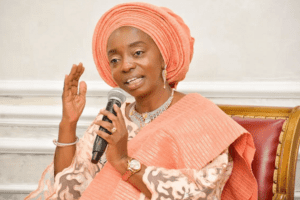Corruption endangers African Agenda 2063 — EFCC Chairman
The Chairman of the Economic and Financial Crimes Commission, EFCC, Abdulrasheed Bawa, has said that the African Vision (Agenda 2063) will be a mirage if corruption is not decisively dealt with on the African continent.
Bawa was speaking at the virtual meeting of the 5th African Union Day of Anti-Corruption with the theme: “Regional Economic Communities: Critical Actors in the Implementation of the African Union Convention on Preventing and Combating Corruption.”
According to him, corruption presents a major threat militating against the actualization of the “Africa of good governance, democracy, and respect for human rights, justice and the rule of law… which is the vision of African Agenda 2063.”
The EFCC Chairman who was represented by the Director of Intelligence, Abubakar Saád, observed that corruption is a threat to the dream of a united and prosperous Africa.
“It has drastically increased the prevalence of poverty and inequality on our continent. Our continent continues to suffer from rampant debilitating capital flight and illicit financial flows, accompanied by a consistent decline in the standard of living and quality of life of our people,” he explained.
He, however, remarked that the adoption of the African Union Convention on Preventing and Combating Corruption (AUCPCC), signed in Maputo, Mozambique, on 11th July, 2003 and its coming into force in 2006, has brought about remarkable progress in the fight against corruption.
“It has also provided a fulcrum for Regional Economic Communities to synergize anti-corruption efforts undertaken by National Anti-Corruption Authorities (NACAs) and measure the impact of prescribed interventions.”
Speaking on the topic: “Effective Implementation of the AUCPCC by RECs and NACs in Combatting Corruption and Achieving African Agenda 2063,” Hajia Hadiza Gamawa, Chief of Staff (CoS) to the Executive Chairman, EFCC said corruption undermines accountability and transparency in the management of public
affairs as well as socio-economic development of the continent.
She recommended that Regional Economic Communities domesticate and institutionalize AUCPCC Implementation review process to serve as averitable yardstick for the objective evaluation of the implementation of the AUCPCC.
The CoS also recommended the full implementation of the African Union Advisory Board on Corruption (AUABC) Strategic Plan which contains a comprehensively outlined implementation plan with measurement and evaluation and results indicators.
The measure, she said will ensure member countries synchronize the Anti-corruption activities of their National Anticorruption Authorities (NACAs) and ensure that NACAs operate as a cohesive entity within their sub-region (RECs) and within the African Union.
“We therefore urge RECs and the ACAs to recommit to the implementation of the AUCPCC now more than ever as we seek to build “an Africa of good governance, democracy, and respect for human rights, justice and the rule of law; as African Agenda 2063 is unachievable without combating corruption.”
Other speakers at the virtual event include Adedayo A. Kayode, Director, Asset Tracing, Recovery and Management, ICPC, who spoke on the topic: “The Role of Stakeholders in Combating IFFS for Effective Implementation of African Continental Free Trade Area (ACfTA) Agreement” and Auwal Ibrahim Musa Rafsanjani, Executive Director CISLAC, who spoke on: “Encouraging a Culture of Corporate Transparency, Accountability and Integrity in Multinational Corporations.”




